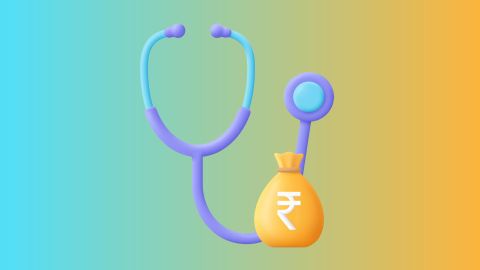Hospitals play a crucial role in maintaining the health and well-being of our communities. They are not just places where we go for treatment when we are sick, but centres that provide a wide range of services essential for public health. Understanding the various functions of a hospital helps us appreciate the complexity and importance of these institutions. In this article, we will explore the many functions of hospitals, including their roles in patient care, medical education, and research. We will also touch on how these functions are supported and enhanced by modern financing solutions, like the Bajaj Finserv Doctor Loan, which can be crucial for medical professionals managing their practices.
10 Functions of a Hospital
Hospitals serve numerous functions that go beyond basic medical treatment. Here are ten key roles that they play:
- Patient care: Hospitals provide essential medical services including emergency care, surgery, and routine check-ups.
- Medical education: They serve as training grounds for medical students and residents, ensuring the next generation of doctors is well prepared.
- Research: Hospitals engage in research to advance medical science and improve patient outcomes.
- Prevention and health promotion: They offer services to prevent diseases and promote healthy lifestyles.
- Community outreach: Hospitals work within communities to address health issues and provide education.
- Home and community nursing: Hospitals extend their services to home care and community settings, offering support for patients outside the hospital.
- Sports medicine: They provide care for athletes and individuals with sports-related injuries.
- Major incidents: Hospitals play a critical role in handling major incidents, including emergencies and disasters.
- Communicating with patients: Effective communication is crucial for patient care, involving consultations and updates about health conditions.
- Financial and administrative management: Managing finances and administrative tasks ensures smooth hospital operations.
Patient Care
One of the primary functions of a hospital is to provide comprehensive patient care. This includes emergency treatment, surgical procedures, and ongoing care for chronic conditions. Hospitals are equipped with advanced medical technology and staffed by trained professionals to ensure that patients receive the best possible care.
Medical Education
Hospitals are vital for medical education and training. They offer practical experience to medical students and residents, bridging the gap between theoretical knowledge and real-world practice. This hands-on experience is essential for developing skilled healthcare professionals.
Research
Research is a fundamental function of hospitals, contributing to advancements in medical science. Hospitals conduct clinical trials, studies, and other research initiatives to discover new treatments and improve existing ones. This research is crucial for enhancing patient care and medical practices.
Prevention and Health Promotion
Hospitals also focus on prevention and health promotion. They run vaccination programmes, health screenings, and educational workshops to help prevent diseases and promote healthier lifestyles. This proactive approach helps reduce the incidence of illnesses and improves overall community health.
Community Outreach
Hospitals engage in community outreach to address local health issues. They collaborate with community organisations to provide health education and services, ensuring that healthcare reaches underserved populations. This outreach is crucial for improving public health and ensuring equitable access to medical care.
Home and Community Nursing
Extending their services beyond hospital walls, many hospitals offer home and community nursing. This includes providing in-home care for patients recovering from illness or surgery and offering support for chronic conditions. This service helps patients receive care in the comfort of their own homes.
Sports Medicine
Sports medicine is another important function of hospitals. They provide specialised care for athletes and individuals with sports-related injuries. This includes treatment, rehabilitation, and preventive care to help patients return to their activities safely and effectively.
Major Incidents
Hospitals play a critical role in managing major incidents, such as natural disasters or large-scale emergencies. They are equipped to handle a surge in patients and provide essential care during crises. Preparedness and response planning are key to their role in major incidents.
Communicating with Patients
Effective communication with patients is essential for quality care. Hospitals ensure that patients are informed about their health conditions, treatment options, and progress. Clear communication helps patients make informed decisions and enhances their overall experience.
Conclusion
Hospitals are complex institutions with multiple functions crucial for community health. From patient care to research and community outreach, they play a vital role in maintaining and improving public health. For medical professionals, managing these functions can be supported by financial solutions like the Bajaj Finserv Doctor Loan, which offers flexible financing options to help with practice management and personal expenses.




